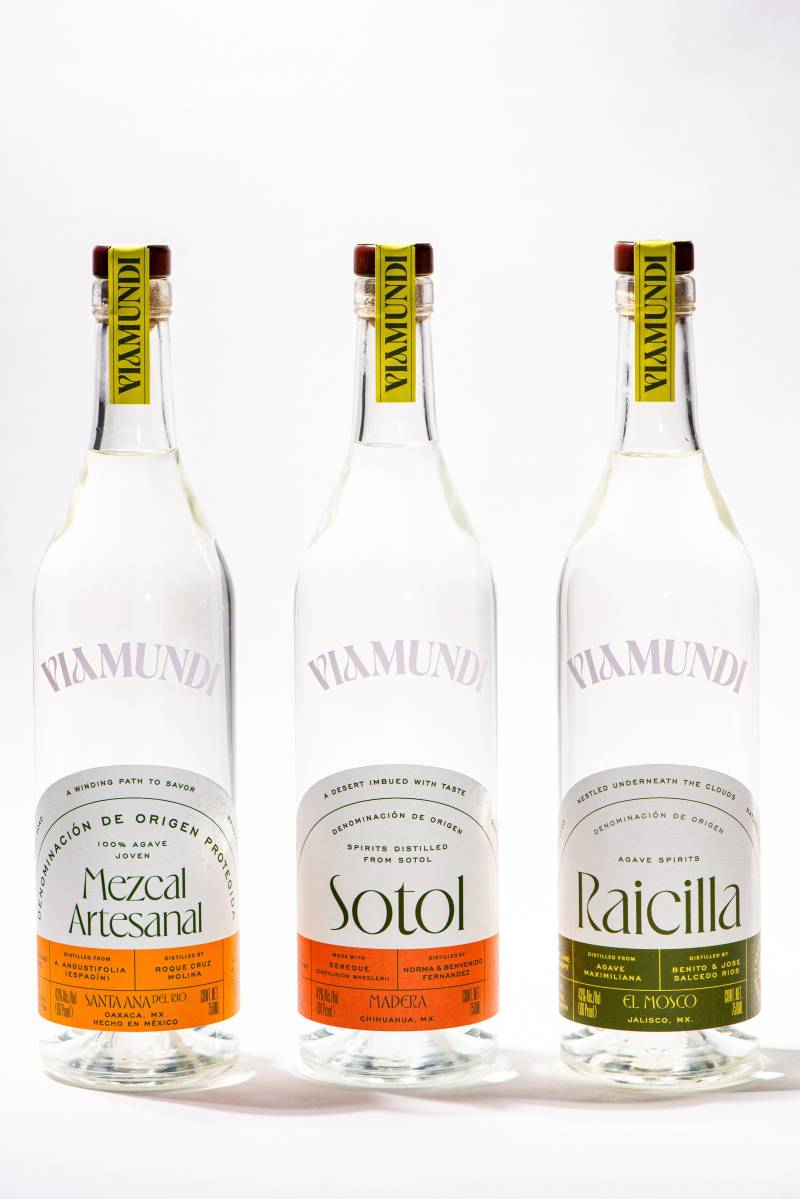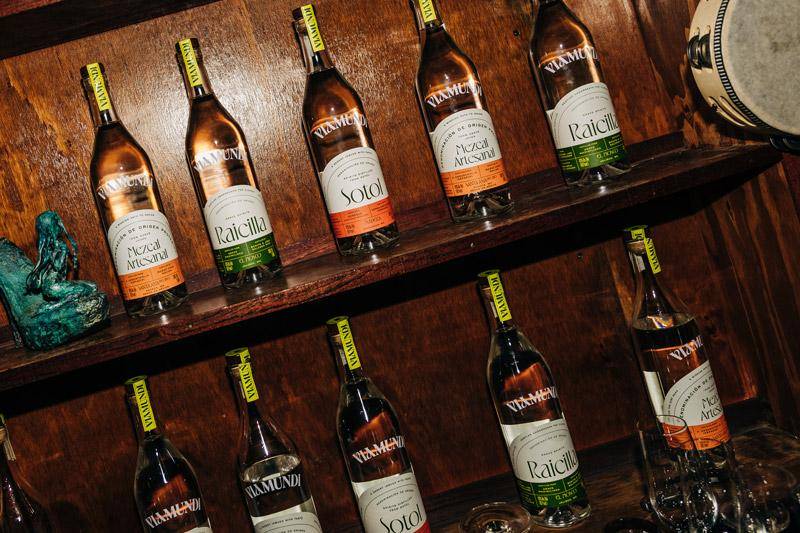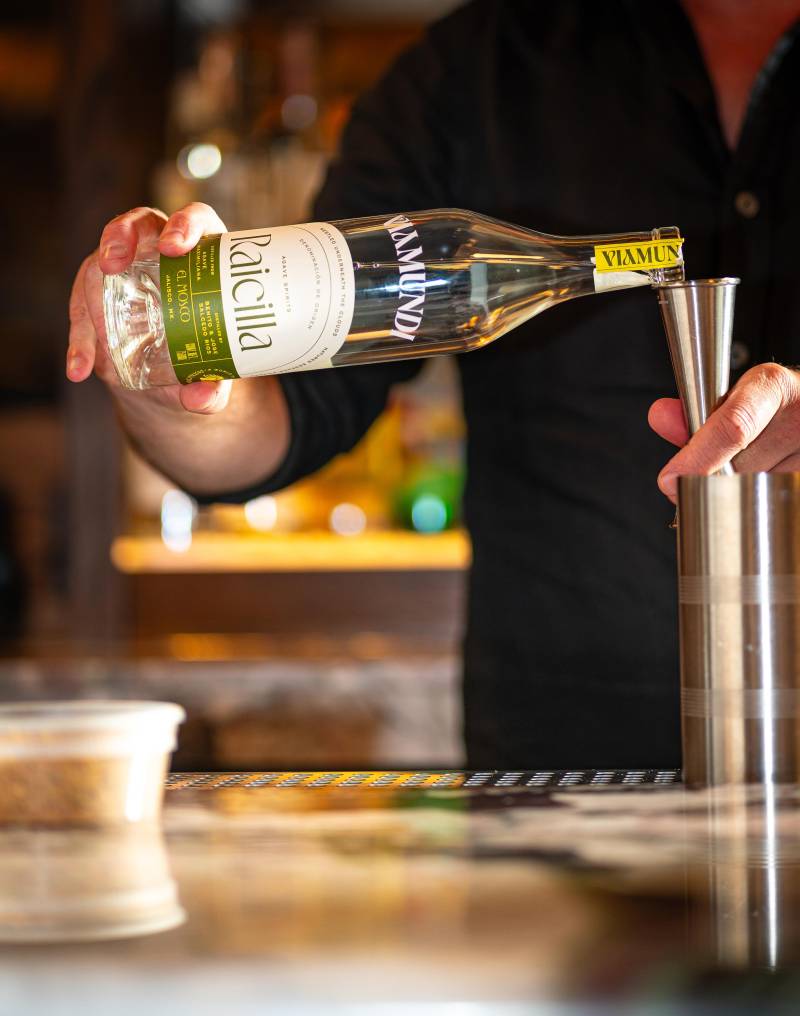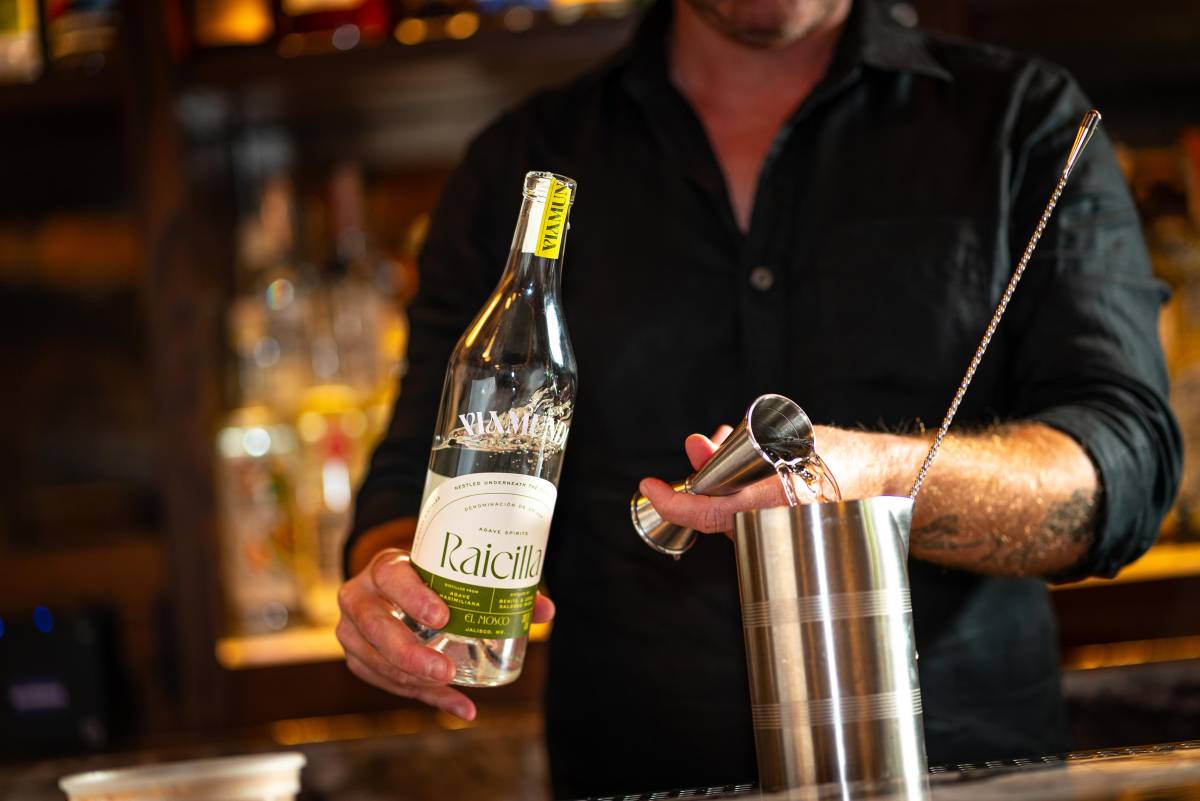When I was a young man and just starting to enter the world of spirits, the only game in town was Cuervo Gold and tequila was something forbidden, cheap, and dangerous. Today ... thankfully ... we have access to a wide selection of fine mezcals and the American thirst for agave has risen to the point where it's not enough to simply drink tequila. Just like how whiskey has Scotch, Bourbon, Rye etc., agave spirits come in many different expressions too. One of the most exciting is raicilla but most people don't fully understand how it differs from tequila, bacanora, mezcal.
Which Mexican Spirit Is Your Favorite?
- Raicilla is a distinct Mexican spirit, crafted from lechuguilla and puta de mula agave, offering a taste that is sweeter and fruitier than most mezcals.
- Differing from tequila that solely uses blue agave, raicilla utilizes multiple agave types and undergoes a lengthier fermentation, enhancing its unique flavor.
- Representing Mexico's rich distilling heritage, raicilla provides a distinct taste experience unlike the globally popular tequila.
- Raicilla stands out among other agave spirits due to its artisanal production process, which includes a fermentation duration of 6 to 15 days, allowing for a range of flavors.
- Marked by sweet, fruity, floral, citrusy, and peppery notes, the flavor profile of raicilla showcases the unique character and cultural significance of this spirit.
While I'm a passionate fan of mezcals, I want to say a special thanks to the folks at Viamundi, a new brand that specializes in native Mexican spirits. They sent over some of their new products for me to try out. You can order these online through their website.

I know that many of you have organized whiskey tastings and even tequila tastings as part of a guys night out or bachelor party ... but as much as I LOVE tequila, you owe it to yourself to expand your horizons and compare how these different Mexican spirits compare to each other. This could be dangerous though ... you may be planning a trip to Jalisco or Sonora for your next guys trip!
Raicilla - 43% ABV (SRP $59.99)
Raicilla, rooted in Jalisco, Mexico, is a traditional agave spirit known for its milder, fruity, and floral character compared to Mezcal. Viamundi's Raicilla is crafted from Agave Maximiliana, one of the five agave species native to the region. Historically produced in secluded areas without regulation, Raicilla now benefits from government partnership, ensuring production regulations preserve its small-batch, traditional distillation process. Crafted by third-generation Raicilleros, brothers Benito and Jose Salcedo Rios, the spirit is distilled in the remote town of El Mosco, high in the Sierra Madre Occidental mountains. It offers tasting notes of green apple, citrus, and avocado, with aromas of lemongrass, lime zest, and cantaloupe.
Sotol - 42% ABV (SRP $54.99)
Sotol, though not agave-based, is a traditional Mexican spirit made from the Dasylirion plant, also known as the Desert Spoon. Viamundi's Sotol is produced similarly to Mezcal, cooked underground in conical pits, which imparts earthy and herbal flavors. This expression is distilled in copper stills and finished in wooden tubes. Distillers Bienvenido Fernandez and his daughter Norma, with over 40 years of experience, craft this spirit in Madera, Chihuahua, at 6,500 feet in the Sierra Madre Occidental mountains. The spirit features tasting notes of earth, honey, and fresh herbs, with aromas of black licorice, plums, and raspberry.
Espadin Mezcal - 43% ABV (SRP $42.99)
Espadin Mezcal, often referred to as 'Tequila's smoky cousin,' is made from the heart of the agave plant, specifically Espadin agave, known for its distinctive smoky flavor. Produced in Santa Ana del Rio, Oaxaca, this Mezcal is distilled by Roque Cruz Molina, a fourth-generation mezcalero, using traditional craft methods in small batches. The Mezcal boasts tasting notes of pink peppercorn, citrus, and black tea, complemented by aromas of pineapple, baking spice, and caramel.
Unlike tequila, a spirit that even casual cocktail drinkers understand today that should be made 100% from fermented blue agave, raicilla is made from a variety of different agave plants, including lechuguilla and puta de mula. This contributes to its distinctive flavor - one that is sweeter and fruitier than most other mezcals. Interestingly, while other mezcal's are more commonly sourced from regions like Durango or Oaxaca and tequila is exclusive to the state of Jalisco, Raicilla is also from there but evolved in the western part, closer to the coast, whereas the namesake town of Tequila is located more than a hundred miles inland, closer to Guadalajara.
With an extended fermentation process of 6 to 15 days, you'll be entranced by the complexity of citrusy, peppery, and floral notes. As a testament to local culture and artisanal craftsmanship, each batch of raicilla offers a different experience.

How Does Raicilla Compare To Tequila and Bacanora?
Let's take a look at how Raicilla compares to other agave spirits - specifically Tequila and Bacanora. We're going leave Sotol off the list because while many people lump it into the "agave spirits" family, the truth is that it is distilled from a completely different plant. Likewise, we're going not going include Pulque because that is a lower proof agave spirit that is closer to "wine" beverages such as Soju or Sake than it is a Mezcal. In fact, Pulque is often referred to as "Agave Wine" ... but that's a tale for a different time.
| Raicilla | Tequila | Bacanora | |
|---|---|---|---|
| Origin/Region | Jalisco and Nayarit, Mexico | Jalisco and parts of Guanajuato, Nayarit, Michoacán, and Tamaulipas, Mexico | Sonora, Mexico |
| Agave Type | Various agave species (e.g., Agave maximiliana, Agave inaequidens) | Predominantly Blue Weber Agave (Agave tequilana) | Agave Pacifica (Agave angustifolia) |
| Production Method | Traditional methods using pit ovens or clay pots for distillation | Industrialized processes with strict regulations, often using steam ovens | Similar to Mezcal production with underground roasting pits and small-scale distillation |
| Flavor Profile | Earthy, vegetal, often smoky with citrus and floral notes | Clean, with a range from sweet, earthy to spicy, depending on aging | Smoky, herbal, earthy with hints of pepper and citrus |
| Aging Categories | Generally unaged (Joven) but can be aged as well | Blanco (unaged), Reposado (aged 2-12 months), Añejo (aged 1-3 years), Extra Añejo (aged 3+ years) | Usually unaged, though some aged versions exist |
| Legal Designation | Designated as a unique spirit with its own Denomination of Origin (DO) | Protected by Denomination of Origin (DO) since 1974 | Designated as a unique spirit with its own Denomination of Origin (DO) in 2000 |
| Cultural Significance | Traditional spirit with deep roots in local culture, often used in ceremonies | Integral to Mexican culture and identity, internationally recognized | Strong cultural heritage in Sonora, often associated with regional pride and traditions |
With that out of the way, let's take a deeper look at Raicilla is and why this particular agave spirit is so unique and exciting for mezcal fans.
Raicilla Production Process: How It's Made
Diving into the production process of raicilla, you'll find a meticulous blend of traditional methods and regional ingredients that contribute to its unique flavor. Harvesting agave plants in Jalisco, Mexico, is the initial step; used are the lechuguilla and puta de mula varieties, each lending a distinct characteristic to the raicilla's flavor profile.
Following harvest, these agaves are roasted in traditional ovens, typically wood-fired. This roasting imparts a unique flavor, setting the stage for the complex taste profile of raicilla. After roasting, the agave hearts are crushed to extract the juice, which then ferments using natural yeasts for up to 15 days.
The distillation process is key to raicilla's uniqueness. Distilled in small batches using pot stills, it's a time-honored tradition that requires patience and skill. Sometimes, distilled water is added to reach the desired alcohol content, but the true magic lies in the distinctive flavors crafted throughout this process.
From floral to citrusy, and peppery to smoky, the carefully managed production process of raicilla guarantees that each sip you take offers a unique and enchanting experience, truly setting it apart from other agave spirits.

The Unique Taste Profile of Raicilla
To truly appreciate raicilla, you need to investigate its unique taste profile, a symphony of sweet, fruity flavors punctuated by floral, citrusy, and peppery notes. As you savor each sip, you'll start to understand how the agave species used in its production, like lechuguilla and puta de mula, contribute to this one-of-a-kind flavor experience.
Top Pairing Suggestions for Raicilla
Many of us are already familiar with good pairing suggestions for tequila ... and any of those will likely work well with raicilla as well. However, to support and enhance the uniqueness of raicilla, here are some suggestions to try when preparing a pairing menu.
- Grilled Seafood - The fruity and citrusy notes of Raicilla are a perfect match for the smoky, charred flavors of grilled shrimp, octopus, or fish, creating a harmonious balance of flavors.
- Ceviche - The fresh, tangy acidity of ceviche beautifully enhances Raicilla's bright citrusy and peppery undertones, making it an ideal pairing for a light, refreshing meal.
- Tropical Fruits - Pairing Raicilla with tropical fruits like mango, pineapple, or papaya brings out the spirit's natural sweetness and floral notes, creating a vibrant and flavorful combination.
Best Cocktail Flavors for Raicilla
For those looking to try their hand at making a racilla cocktail, here are some suggestions for flavors that pair well in the glass.
- Citrus - Lime, lemon, and grapefruit are ideal for highlighting Raicilla's bright and zesty citrus notes, making them perfect base ingredients for refreshing cocktails.
- Herbal - Flavors like mint, basil, and rosemary beautifully complement Raicilla's earthy and vegetal tones, adding depth and complexity to your drink.
- Tropical Fruits - Mango, pineapple, and passionfruit bring out the sweet and fruity character of Raicilla, creating vibrant, exotic cocktails.
- Spicy - Jalapeño, habanero, and ginger add a kick that pairs well with Raicilla’s subtle smokiness and peppery undertones, adding an exciting twist to your drinks.
- Floral - Lavender, elderflower, and hibiscus enhance Raicilla’s delicate floral notes, making for elegant and aromatic cocktails.
Other flavors like berry, smoky elements, agave sweeteners, honey, and cucumber also complement Raicilla’s complex profile, adding versatility to your cocktail creations.
Dive deeper into the world of raicilla and you'll uncover the secrets behind its fermentation process. Unlike tequila, which often ferments for just a few days, raicilla's fermentation can last between 6 to 15 days. This extended period allows for complex flavor development that sets raicilla apart from its agave spirit siblings.
And let's not forget the role of regional influences in creating raicilla's unique flavor profile. The local terroir and traditional production methods specific to regions in Jalisco lend a distinctive character to each batch of raicilla.

Raicilla Is More Than Just Another Mezcal!
Now is a great time to be a fan of Mexican spirits, culturally we're beginning to break through of the shackles that have held us back by thinking that "Mexico" was a place only known of cheap drinks on spring break and Cinco de Mayo fiestas. Today, some of the best chefs in the world are Mexican, and there's a culinary craving for high-quality Mexcian spirits as well.
This opens the door perfectly for Raicilla!
As a distinct Mexican spirit with hundreds of years of heritage and tradition that blends Spanish, Filipino, and indigenous, including Zapotec and Mixtec cultures, raicilla stands out as something worth making the extra effort to get your hands on a bottle. When you do, you'll agree with me that the artisanal nature of Raicilla's production, rooted in Mexico's rich distilling heritage, results in an experience that delivers sweet, fruity, floral, citrusy, and peppery notes, providing a taste experience that is FAMILIAR ... but truly unique among other Mexican spirits that you might have tried previously.
